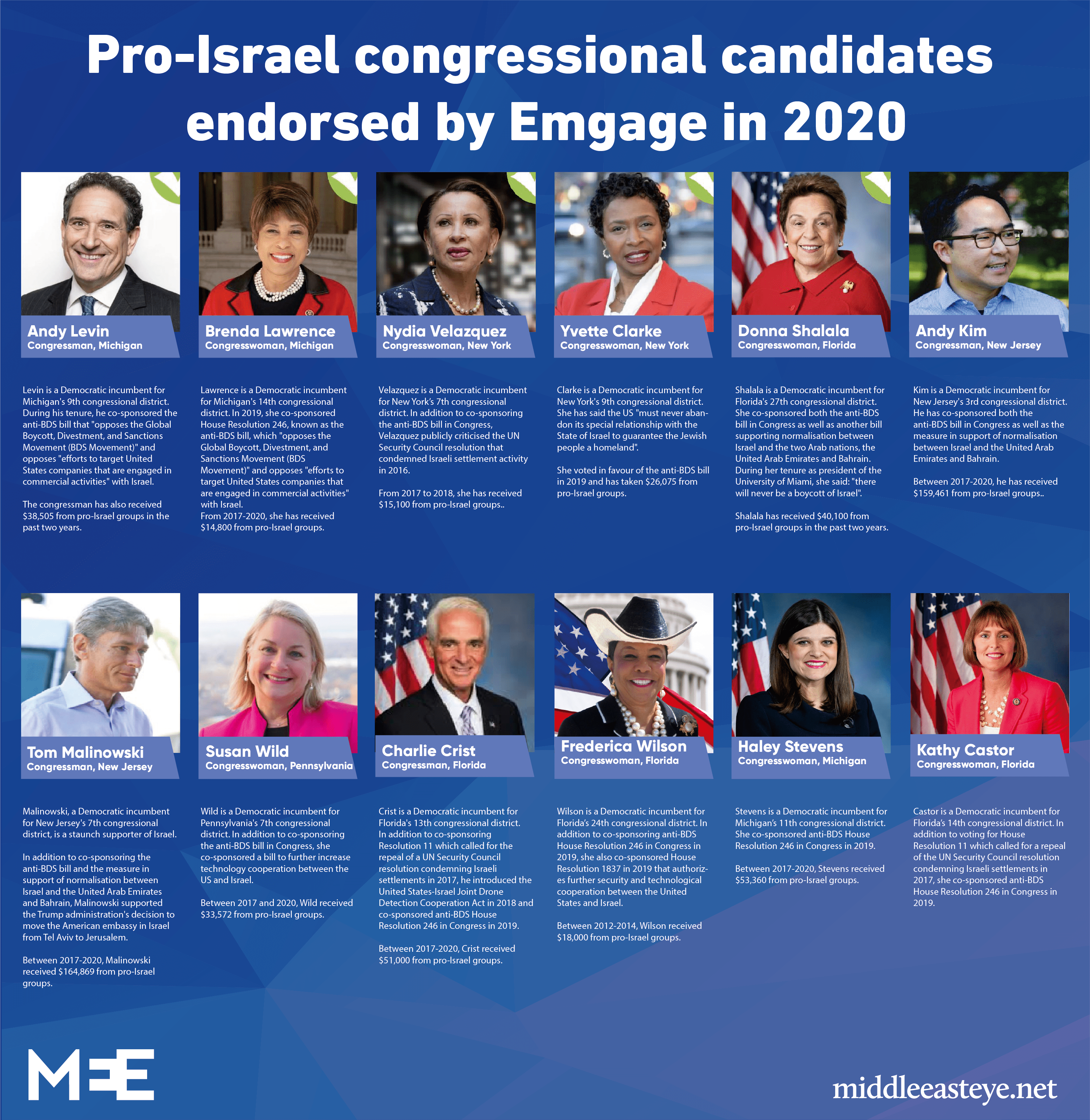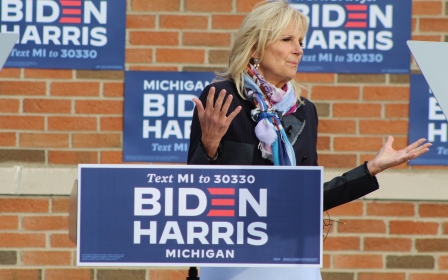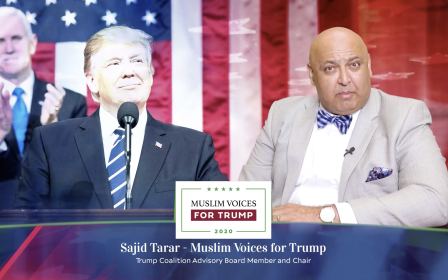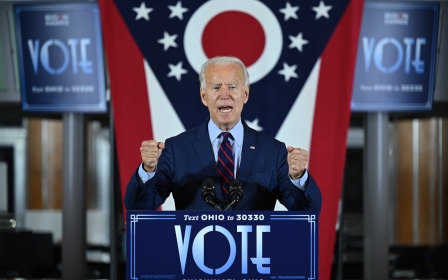US Muslim student groups drop Emgage from voter mobilisation event
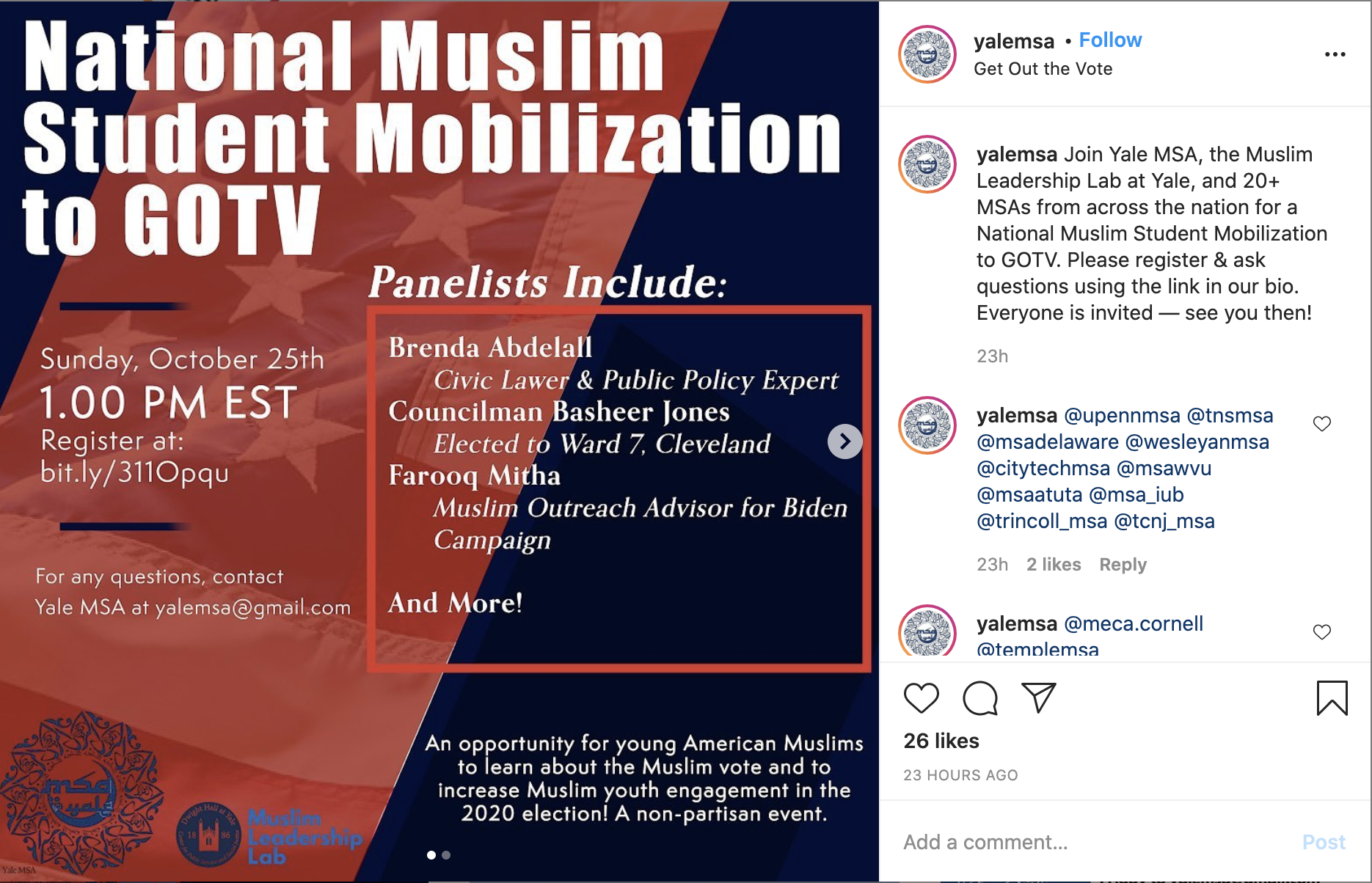
Muslim student groups at more than 30 US universities have dropped Emgage, a Muslim political advocacy group that has come under fierce criticism in recent weeks over its ties with pro-Israel groups, from an event aimed at mobilising young voters.
The event, hosted by Yale University's Muslim Student Association (MSA), had initially been advertised with Emgage as a sponsor alongside the Muslim Leadership Lab, a programme at the school. The event also included Farooq Mitha, the co-founder of Emgage and presidential nominee Joe Biden's Muslim outreach coordinator.
Following complaints from students and activists across multiple universities, Yale's MSA dropped Emgage from the event completely.
The Yale MSA, its president Yousra Omar, and Emgage did not respond to Middle East Eye's request for comment or clarification.
'A million articles have come out about the connections between Emgage, and the Zionist lobby and ADL, MLI'
- student activist
However, MEE has seen the email exchange between the Yale MSA and activists confirming that Emgage had been removed following pressure from students.
"Since the recent articles that have come out criticising Emgage’s previous involvement with Anti-Defamation League (ADL) and Muslim Leadership Initiative (MLI), we had been reevaluating out involvement on the basis of prioritizing Muslim voices," Omar, Yale's MSA president, wrote in response to an email urging that Emgage be dropped.
"We came to the conclusion that Emgage has since worked to engage and uplift the voices of Muslim individuals on a national level through their participation in getting Representatives Rashida Tlaib and Ilhan Omar to Congress."
"They have also pushed the Biden campaign to be responsive towards issues regarding Palestine and Israel, specifically in terms of an apology to Linda Sarsour regarding comments made about Zionism and anti-Semitism.
"While Emgage has a questionable history in terms of previous partnerships, I think it is important to highlight the work they are doing now to move the Muslim community in the right direction."
Omar said they would be dropping Emgage because they did not want the other 35 MSA chapters from around the country to pull out of the event based on Emgage's involvement. However, 15 MSA chapters have still recused themselves from the new event.
The fallout comes on the heels of a series of articles published by the Electronic Intifada and Mondoweiss exploring Emgage's relationships with pro-Israel groups and their disconnect with the larger Muslim-American community.
Earlier this month, the US Council of Muslim Organisations announced that they had investigated the concerns and would no longer be working with Emgage.
Though Emgage denies any formal relationships with pro-Israel groups, a Middle East Eye investigation found that Emgage had endorsed more than 20 pro-Israel candidates competing in either Congress or state legislature elections.
Many of these candidates have either voted against the Palestinian-led Boycott, Divestment and Sanctions movement (BDS), supported the UAE's normalisation plans with Israel, and taken collectively in excess of $620,000 since 2017 from pro-Israel lobbyists. Many community organisers told MEE that the group's influence on the Muslim-American community was also exaggerated.
"A million articles have come out about the connections between Emgage and the Zionist lobby and ADL, MLI. Not to mention Farooq Mitha himself [and] his track record of working in the department of defense under Obama," a student activist who asked to remain anonymous, told MEE.
But Yale's MSA has refused to drop Mitha from the programme.
"It is very easy to judge previous track records under exclusively negative limelights as you have chosen to do, but it is important to recognize the difference between people and politics," Omar said, explaining their decision to keep Mitha on the programme.
"We have asked Farooq to be a part of this event to share his experiences in the political realm and expand the range of what our panellists have to offer students."
'Healthy development'
Sahar Aziz, a professor of law and a Middle East and legal studies scholar at Rutgers University law school, described the development as "healthy".
"The example of Yale or this latest event with the Yale MSA and the other MSAs is a healthy reflection of young adult Muslims exercising agency and deciding for themselves whether an organisation aligns with their values," she told Middle East Eye.
Emgage has been described as the largest Muslim political advocacy group in the United States, yet in recent weeks this description has come into question.
Following Biden's nomination to become the presidential nominee for the Democratic Party, Emgage began to represent itself as the Muslim organisation that had exclusive access to him, without mentioning that Mitha, its co-founder, was the go-between.
Aziz said while Emgage should be called into question over how many Muslims Emgage actually represents, that part of the blame should also be placed on the Democratic Party for using Emgage as a representation of the entire Muslim population.
"I think part of it is the typical liberal mainstream strategy of just looking for the model minority voice that will deliver 'the Muslim vote' as if any one organisation could do that.
"The question [that] remains - which we don't know because there's no competition for representation - is just how many people Emgage really represented in the Muslim community? We don't know that percentage," Aziz added.
Middle East Eye propose une couverture et une analyse indépendantes et incomparables du Moyen-Orient, de l’Afrique du Nord et d’autres régions du monde. Pour en savoir plus sur la reprise de ce contenu et les frais qui s’appliquent, veuillez remplir ce formulaire [en anglais]. Pour en savoir plus sur MEE, cliquez ici [en anglais].


